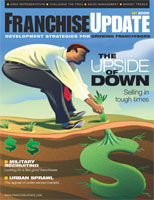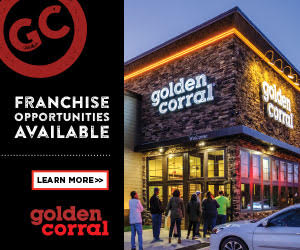Get It in Writing!: Protect Yourself From Lawsuits By Documenting Your Sales Process
Let's play Jeopardy. The answer: "Document!"The question: "What is the most effective way to minimize risk in the franchise sales process?"
To be honest, my answer is a form of shorthand, but it succinctly makes my point.
The inspiration for this pedantic piece was a recent decision by an Australian trial court, Van Camp v. Muffin Break Pty Ltd. Foreign court decisions are typically not given great weight in the U.S., but the Australian franchise regulatory scheme, particularly in the area of disclosure, is very similar to ours. Moreover, Australian trial judges are typically more detailed and more open about saying what is on their minds than their U.S. counterparts. Thus, their decisions, although often quite lengthy, make interesting reading for the legal community--plus they can be helpful in what I will describe as prophylactic counseling. For example, the Australian Lennards case, decided about four years ago, gives a fascinating example of how Australian judges scrutinize earnings claims (oops: financial performance representations!) that are allegedly misleading.
In Muffin Break, the franchisor granted a franchise to operate a muffin shop at a particular shopping center. Allegedly, the franchisor's representative made various representations, orally, with respect to the anticipated performance of the unit. The projections did not hold true, and the franchisee sued for misrepresentation. I have not had the opportunity to review the relevant franchise agreement or disclosure document in this case, but the court's opinion suggests these documents had the customary waivers and franchisor-favorable acknowledgments (i.e., oral representations should be ignored, franchisee acknowledges that it has received no information about earnings that is not included in the written documentation, and so forth) that we see in the United States.
The trial judge ultimately ruled in favor of the franchisee. It appears three key factors led to this decision. First, the franchisee was very persuasive in his testimony. The story sounded credible, even though courts usually take oral testimony in Australia (as is the case here) with a certain degree of reluctance.
Second, the testimony of the franchisor's two primary witnesses was not, in the court's eyes, credible. The judge found it evasive and non-responsive. (This may have worked for President Reagan in the Iran-Contra proceedings, but it didn't work here.) The fact that the case was brought soon after the incident occurred didn't help the credibility of the franchisor's witnesses either. It was too soon for the witness to have forgotten what representations were made in the sales process. Of particular interest here is the detail the judge noted in reaching his conclusions about the credibility (or rather lack of credibility) of the franchisor's witnesses.
Third, the franchisor did not keep good records of the exchanges between franchisor and franchisee during the sales process. In fact, there are suggestions by the judge that one of the franchisor's witnesses manufactured their written evidence ex post facto (i.e., after the fact). By itself, this was a highly damaging fact.
On these bases, the court ruled in favor of the franchisee and awarded rescission and damages to restore to the franchisee the amount they invested, plus operating losses.
What does this decision suggest to the U.S. franchise community?
1) Make sure your franchise disclosure document is accurate and complete. The FDD is the essence of the disclosure process, and failure to properly present the offer--even if the inaccuracy is not relevant to the thrust of a franchisee's claim--will weaken a franchisor's credibility. In this case, the veracity of the disclosure document was not at issue, as the financial performance representations were made outside of the document. Nevertheless, if the disclosure document is not complete and accurate, the issues relating to oral representations become frosting on the cake.
2) Train your sales force meticulously about what can and cannot be stated to a prospect, especially if there is no financial performance representation (FPR) in the document. One franchisee-oriented attorney once said to me, "Show me a franchise disclosure document that does not have an earnings claim, and you have shown me a lawsuit." He didn't say it would definitely be a winner, but it was certainly a place to start negotiations that might be expensive and distract from the franchisor's mission to run a well-oiled franchise system. In Muffin Break, the court concluded that the franchisor's sales representative was new, not particularly as knowledgeable as he should have been with the company's sales policies, and not well supervised.
We all joke about the so-called cocktail napkin disclosure document, but they do exist, and it is always suspicious when a franchisor claims it has made no FPRs in connection with franchise sales, even if true.
3) Keep good and contemporaneous records of meetings and telephone exchanges between franchisees and all franchisor's sales representatives. As Muffin Break indicates, no records of these exchanges is bad, and rewriting history is worse.
Records can be good or bad. If they document violations of disclosure rules, they are simply digging the grave for the franchisor when the dispute begins. On the other hand, if they support the franchisor's position, they will not necessarily guarantee that the franchisor wins, but they certainly will enhance the franchisor's credibility.
And if the records show that the franchisor has not followed the rules, settle the dispute and settle it quickly. This may not be good for those lawyers that earn their crust (an Australian phrase) by representing franchisors in franchise litigation or arbitration, but it is the right thing for the franchisor to do. It supports the franchisor's integrity; it avoids bad legal precedents; and it allows management to focus its attention on what it should be doing: selling franchises and giving the franchisees the assistance they need to succeed.
Rupert Barkoff is a partner in Kilpatrick Stockton LLP's Atlanta office, where he heads the firm's Franchise Practice. He is a past chair of the American Bar Association's Forum on Franchising, and Co-Editor-in-Chief of the ABA's publication, Fundamentals of Franchising. His current "night job" is collecting stories on good and bad customer service, which will be used as the basis for a future book. Go to www.anecdatabook.com and submit one or several stories.
Share this Feature
Recommended Reading:
Comments:
comments powered by DisqusFRANCHISE TOPICS
- Multi-Unit Franchising
- Get Started in Franchising
- Growth
- Operations
- Open New Units
- Leadership
- Marketing
- Technology
- Legal
- Awards
- Rankings
- Trends
- Featured Franchise Stories
FEATURED IN

Franchise Update Magazine: Issue 1, 2009






 The franchise listed above are not related to or endorsed by Franchise Update or Franchise Update Media Group. We are not engaged in, supporting, or endorsing any specific franchise, business opportunity, company or individual. No statement in this site is to be construed as a recommendation. We encourage prospective franchise buyers to perform extensive due diligence when considering a franchise opportunity.
The franchise listed above are not related to or endorsed by Franchise Update or Franchise Update Media Group. We are not engaged in, supporting, or endorsing any specific franchise, business opportunity, company or individual. No statement in this site is to be construed as a recommendation. We encourage prospective franchise buyers to perform extensive due diligence when considering a franchise opportunity.